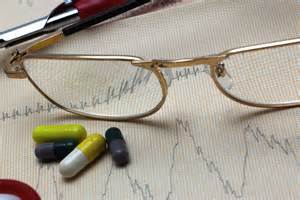Risk Factors of Hormone Therapy

The topic of hormones is riddled with hot debate. If our hormones are out of balance, do we use prescription synthetic hormones or "Bio-Identical Hormones"? Are we better off using herbs or another remedy? The schools of thought on this topic vary widely.
HRT (hormone replacement therapy) as preventive strategy against chronic disease is not supported by data. According to recent studies there is no evidence that the therapies would prevent in healthy menopausal women future health event such as heart disease or cognitive decline.
In the featured CNN article was said: "Years ago, in addition to providing relief for menopause symptoms, hormone therapy was thought to offer protection against cardiovascular problems, osteoporosis and dementia, so doctors routinely prescribed it to otherwise healthy women. That practice fell out of favor about 10 years ago when a large clinical trial - the Women's Health Initiative - designed to confirm these hypotheses was halted early. Women involved in that trial were actually at higher risk for many of the problems that hormone therapy was supposed to prevent."
Indeed, many large-scale trials, including the Women's Health Initiative, have indicated that taking estrogen alone, or the combination of estrogen and progestin, actually increased women's chances of developing strokes, dementia, deep vein thrombosis, high blood pressure, weight gain, osteoporosis, urinary incontinence and gallbladder disease. It does not apply to younger women who take hormones due to having their ovaries removed (surgically-induced menopause). In these cases, hormone therapy is a necessity.
A better alternative is to use bioidentical hormones. These are natural hormones that are "bioidentical" to the ones your body produces. The bioidentical that is prescribed 80 percent of the time is estriol. It's natural, not a drug, and you get it at compounding pharmacies. It has been used safely for decades, and it's particularly useful when your ovaries have been removed or you've had a hysterectomy.
Keep in mind that when it comes to administering bioidentical hormones, some delivery methods are clearly superior to others. Oral supplementation is perhaps your worst option, as your liver processes everything in your digestive tract first, before it enters your bloodstream. Any method that bypasses your liver will therefore be more effective. Hormone creams are one common alternative that achieves this. However, since hormones are fat-soluble, they can build up in your fatty tissues and lead to having too much in your body. This in turn can disrupt other hormones. It's also near impossible to accurately determine the dose when using a cream.
When you give the body a hormone - bio-identical or synthetic, the gland becomes lazier. It would be like to having a 40 year old son still living at home and you want him to work. Every day you tell him to get out and find a job. But as he's walking out the door you hand him a $100 bill. He's making about $3,000.00 a month just by walking out the door! What incentive is there for him to work? The same is true of our bodies. Those glands just become lazy and their function diminishes. Where's the benefit?
No one in their right mind would think of taking a sophisticated jet aircraft in flight and entering alien commands into its computer control system. Yet conventional HRT does the equivalent of this, when given to people. Alien commands are entered into the endocrine or main "computer control system" of her body through the drugs inaccurately called "hormones".
- Why HTR create hormonal imbalance
- What is the best way to handle hormones
- What are side effects of using HTR
- In what case is necessary using HTR











